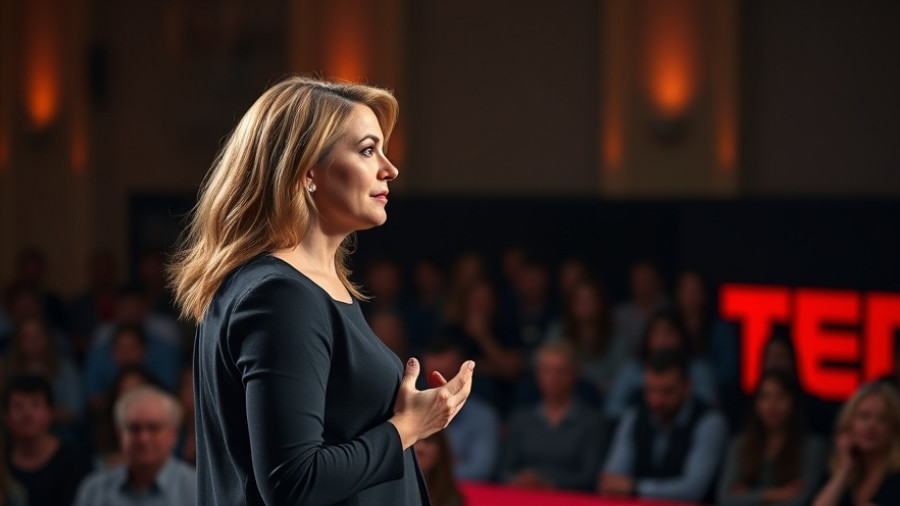
The Power of Legal Action Against Oil Industry Giants
In a compelling narrative shared by Melinda Janki during her TED Talk, she recounts her courageous journey transitioning from a corporate attorney in the oil industry to a fierce advocate for environmental protection in her home country of Guyana. Janki’s story highlights not just her personal transformation, but also the critical legal battles against one of the world’s most influential oil giants, ExxonMobil. With over 11 billion barrels of oil discovered offshore, Guyana found itself at a crossroads between economic opportunity and environmental preservation.
In 'How We Took On an Oil Giant — and Won', Melinda Janki discusses the critical fight for environmental justice in Guyana, prompting a deeper examination of legal strategies against powerful oil corporations.
Guyana's Environmental Legacy and the Oil Industry Threat
Guyana is not just another piece of land; it is part of the vital Amazon rainforest, a global carbon sink providing essential environmental benefits. The discovery of oil has exposed the delicate balance between economic growth and environmental sustainability, a predicament all too familiar for many nations rich in natural resources. Janki passionately argues that the oil industry is more focused on profits than the implications of their operations, which result in catastrophic environmental consequences.
Winning Against the Odds: Legal Strategies that Matter
The tale of Janki's legal confrontations is more than just inspiring; it serves as a roadmap for grassroots movements looking to challenge the might of corporate giants. By employing existing laws rather than moral arguments, she has had significant victories, including reducing Exxon's environmental permits from 20 years to just five. This achievement demonstrates the importance of meticulous legal work and provides a credible model for communities facing similar threats from powerful industries.
The Ripple Effect: Legal Precedents and Their Impact on Environmental Advocacy
One of the most significant legal victories came in 2025, when Janki's team successfully argued that ExxonMobil must consider "Scope 3 emissions"—pollution generated from burning their oil elsewhere—in their environmental assessments. This decision not only sets a precedent for future cases but also amplifies the voice of environmental advocates on a global scale. It establishes a legal framework that holds companies accountable for their environmental impact, regardless of where the damage occurs.
Facing Challenges and Overcoming Fear
Janki acknowledges the uphill battle of taking on a titan of the oil industry, highlighting that many people feel powerless to challenge such formidable forces. However, her journey teaches that fear can be mitigated through legal empowerment. The reforms her team championed remove financial risks for those who wish to stand against environmental injustices, encouraging more individuals to take legal action without fear of crippling costs.
A Call to Action: Empowering Local Communities
The struggles Janki recounts serve as a powerful reminder of the importance of local advocacy and the rights of Indigenous communities. Her work exemplifies how grassroots legal action can lead to significant changes when done strategically and with passion. By demonstrating that these legal battles can indeed be won, she inspires a new generation of environmental protectors who might otherwise feel disenfranchised.
In Janki's view, the oil industry may seem powerful, but they are built on a fragile foundation. Their reliance on fossil fuels is becoming increasingly unsustainable, and with united efforts from local communities and legal advocates, the fight against climate change and corporate malpractice can be effectively waged. Remember, as Janki states—when we have courage and intelligence on our side, victory is possible.
 Add Row
Add Row  Add
Add 




Write A Comment